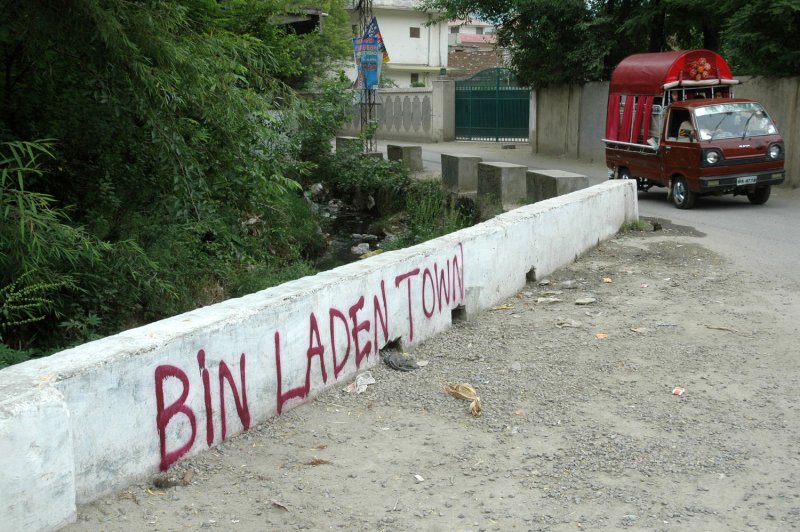1 of 3 | New graffiti reading 'Bin Laden Town' is seen on a wall near the house where al-Qaida leader Osama bin Laden was caught and killed in Abbottabad, Pakistan, on May 6, 2011. The graffiti appeared overnight at various sites around the town. UPI/Sajjad Ali Qureshi |
License Photo
COMBAT OUTPOST ANDAR, Afghanistan, June 6 (UPI) -- Osama bin Laden's death hasn't made a noticeable impact on the Taliban, but an attitude change could happen, Defense Secretary Robert Gates told U.S. troops.
"If I was in the Taliban, I would say, 'What's al-Qaida ever done for me, except get me kicked out of Afghanistan?'" Gates said during a Monday visit to Combat Outpost Andar in the war-torn country. "You might see a growing divide between al-Qaida and the Taliban."
Gates said bin Laden, who had led al-Qaida until his slaying by U.S. troops in Pakistan last month, and Taliban leader Mullah Omar were very close, the Pentagon said in a release.
Gates said coalition and Afghan forces must maintain military pressure during the summer and retain all the territory taken over the past year. The United States intends to start drawing forces out of Afghanistan as early as next month depending on conditions on the ground.
"If we can expand the security bubble ... and if you guys can keep disrupting them up here and preventing the Taliban bed-down … then I think sometime the end of this year these guys will start thinking seriously about reconciliation," he said. "That certainly is my hope, but I don't expect it to make much difference in Afghanistan in the short term. But it could be a game changer long-term."
Gates also said Pakistan must be in the mix.
"The fact is, we need each other" even though the United States and Pakistan have different priorities, he said.
"There's no question that the sanctuaries in Pakistan are a problem for you," Gates said. "But this is something you just have to keep working at. It's like a troubled marriage -- you kind of keep working at it."















